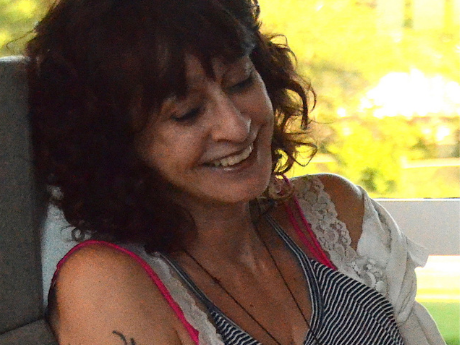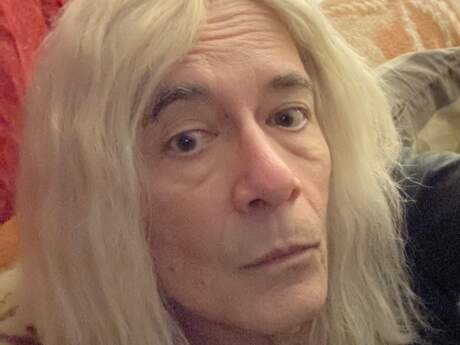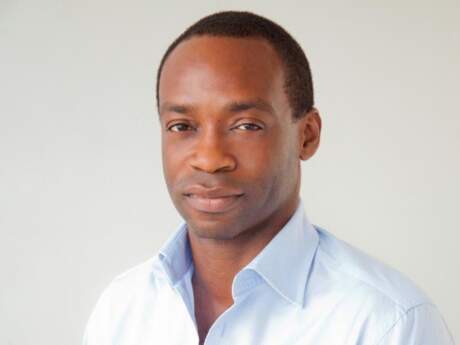Stopping By
Stopping by with Kim Addonizio

During this extraordinary moment—of both pause and activism—we asked writers, musicians, curators, and innovators to reflect on the power and memory of language, shared spaces, and this moment in time.
Kim Addonizio is the author of eight poetry collections, two novels, two story collections, and two books on writing poetry, The Poet’s Companion (with Dorianne Laux) and Ordinary Genius. She has received fellowships from the NEA and Guggenheim Foundation, Pushcart Prizes in both poetry and the essay, and her work has been widely translated and anthologized. Tell Me was a National Book Award Finalist in poetry. Her new poetry collection, Now We’re Getting Somewhere, is out from W.W. Norton in March. She lives in Oakland, CA.
What is the last thing that moved you?
I’m reading Martha Gellhorn’s The Face of War right now and her accounts of people coping in wartime, from soldiers to civilians, I’ve found really moving. She’s a beautiful writer on the horrors and absurdities of violent conflict.
Is there a poem that changed your life?
I wish I remembered the poem that took the top of my head off, à la Emily Dickinson; I’m pretty sure it was something by Sylvia Plath. I was in my late twenties and I hadn’t ever read any modern poetry, or much poetry at all. That was the lightning-strike moment that turned me toward poetry as my path. Another poem that literally raised the hairs on my arms was Keats’s “Ode to a Nightingale.” This energy field—that’s the only way I can describe it—somehow enveloped me and took me out of ordinary reality into some other place. I didn’t understand a lot of what I was reading either time, but I felt that energy.
If you could recommend one book to everyone, what would it be?
This feels like an impossible question, like writing a prescription that could somehow heal everyone, no matter what afflicted them. I guess that metaphor suggests that the arts can heal, which I do really believe.
What is your first memory of poetry either as a child or as an adult?
I used to wow my elementary school classmates with James Whitcomb Riley’s “Little Orphan Annie.” I gave a very theatrical rendition, by heart, and really laid into the refrain:
An' the Gobble-uns'll git you
Ef you
Don't
Watch
Out!
The pandemic continues to keep many public spaces closed. What space—and community—do you miss the most?
I miss sharing meals with friends, so—restaurants. And I miss New York, where I lived for three years before returning to the Bay Area. Those little jazz clubs in the village I’d go to with my brother, where we’d hear such amazing musicians. I really feel for all the out-of-work performers. For the music venues and theaters trying to hang on through all of this.
When it’s safe to travel again, where are you most looking forward to going and what are you most looking forward to doing there?
Besides, obviously, New York City, I’m hoping some far-flung teaching gigs I was really looking forward to will come back: Italy, Singapore, Kathmandu. And I really want to take a trip to Santa Fe with my daughter to show her Meow Wolf’s “House of Eternal Return.”
What do you see as the role of art in public life at this moment in time?
Art makes its way in the world so mysteriously, often underground and out of public view. It’s nice when it wells up in the public imagination, as it does from time to time, and reminds everyone that there is a deep underground river to draw from.
If you were to choose one poem or text to inscribe in a public place right now, what would that be? And where would you place it?
I’ve had so many lovely emails from people who read my poem “To the Woman Crying Uncontrollably in the Next Stall” and said it gave them such solace. I’d like to write it in lipstick on every Women’s Room mirror in the country. I’d probably need an army of women, ready to sacrifice their makeup for a mission of mercy.
Are you working on anything right now that you can tell us about?
I’ve been busy launching my new book of poems Now We’re Getting Somewhere into the world. I’m slowly working on some essays. But mostly I’m learning the banjo. The first tune I’ve taught myself is a Stephen Foster song, written in 1854: “Hard Times Come Again No More.”


